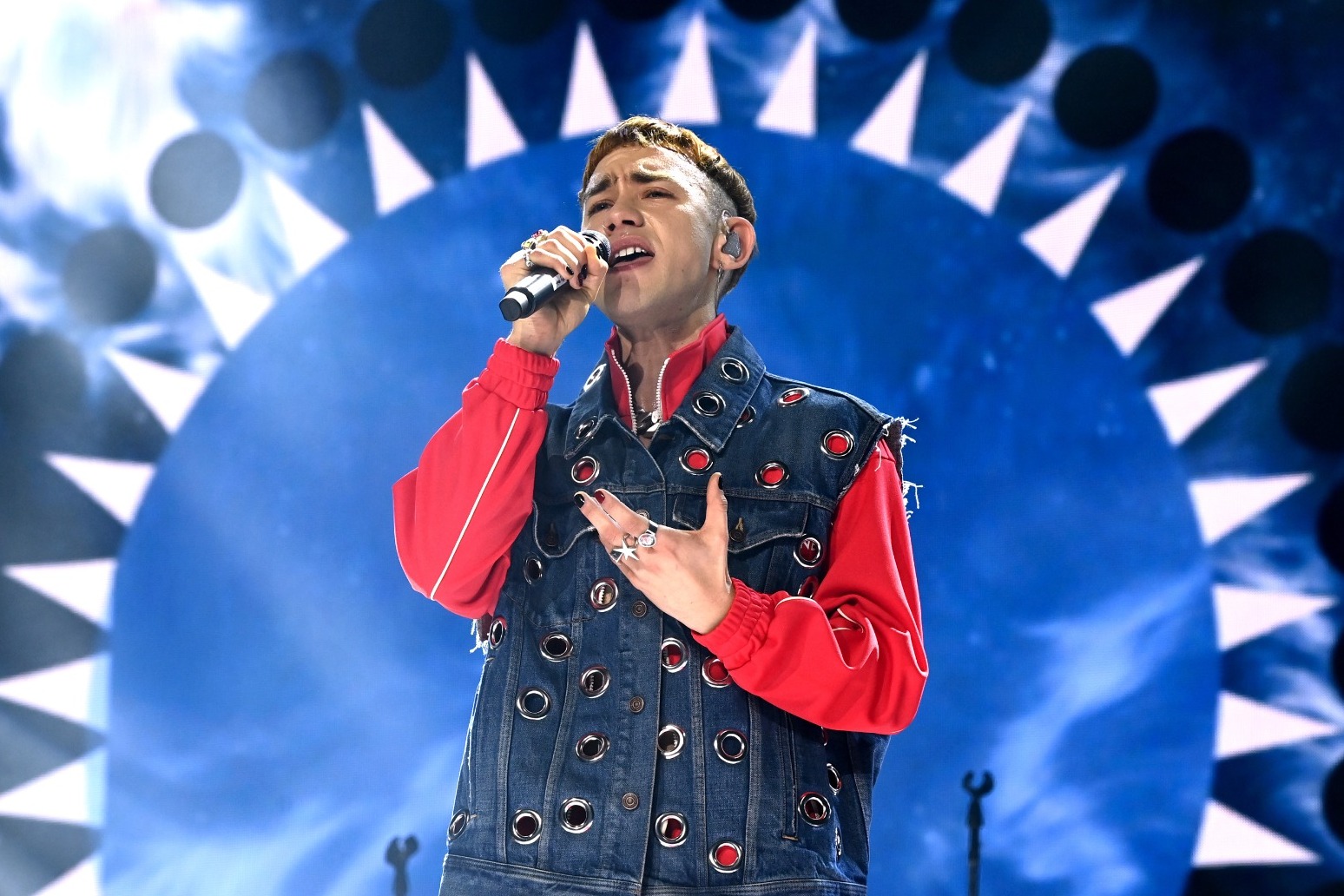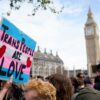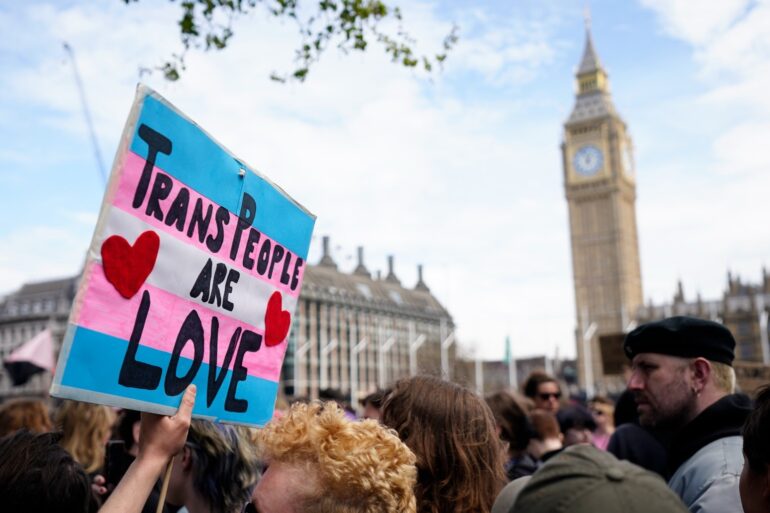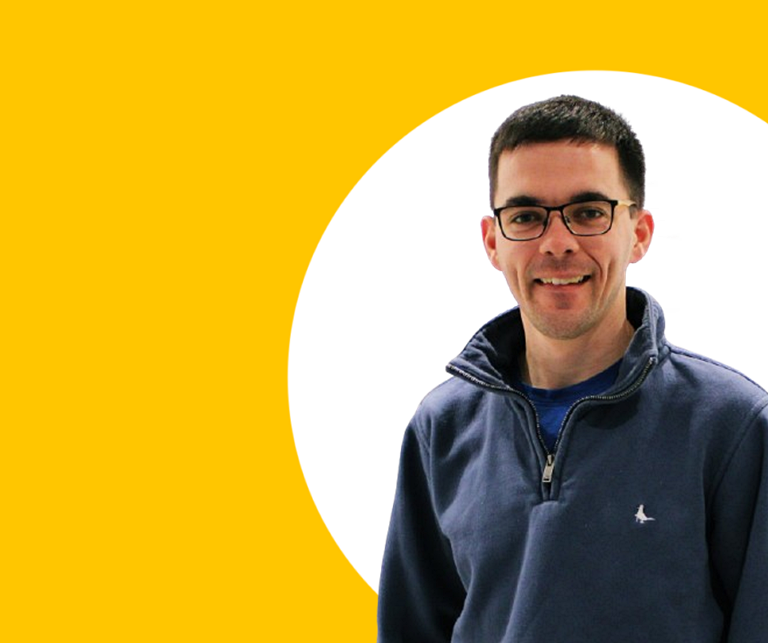-
 play_arrow
play_arrow
Kl 1 Radio Local radio for west Norfolk
-
 play_arrow
play_arrow
KL DISCO KL Disco Playing Disco Music from the 70's onwards.24/7
-
 play_arrow
play_arrow
KL COUNTRY KL COUNTRY Playing New and Classic Country Music 24/7
-
 play_arrow
play_arrow
KL ROX KL ROX The best of New and Classic Rock.24/7
-
 play_arrow
play_arrow
KL SUMMER Summer Vibes 24/7 from KL1 Radio across West Norfolk
-
 play_arrow
play_arrow
KL CLASSICAL Your Symphony Starts Here
-
 play_arrow
play_arrow
KL CHILL Just Chill!
-
 play_arrow
play_arrow
KL POP The Best POP Hits all day Long!
-
 play_arrow
play_arrow
KL XTRA KL XTRA
music_note

The UK’s entrant for this year’s Eurovision Song Contest, Olly Alexander, has rejected calls that he should boycott the competition over the inclusion of Israel.
More than 450 queer artists, individuals and organisations called on him to not perform his dance track Dizzy in Malmo, Sweden, amid the conflict in the Gaza strip.
In a Friday post, It’s A Sin actor Alexander shared a statement alongside Irish hopeful Bambie Thug and the Danish entrant Saba – setting out why they will remain in the competition.
It said: “We want to begin by acknowledging the privilege of taking part in Eurovision.
“In light of the current situation in the Occupied Palestinian Territories, and particularly in Gaza, and in Israel, we do not feel comfortable being silent.
“It is important to us to stand in solidarity with the oppressed and communicate our heartfelt wish for peace, an immediate and lasting ceasefire, and the safe return of all hostages. We stand united against all forms of hate, including antisemitism and Islamophobia.
“We firmly believe in the unifying power of music, enabling people to transcend differences and foster meaningful conversations and connections.
“We feel that it is our duty to create and uphold this space, with a strong hope that it will inspire greater compassion and empathy.”
It is understood by the PA news agency that Alexander was not speaking on behalf of the BBC and he did not break the broadcaster’s social media guidelines.
The statement was also signed by Norway’s Gate, Portugal’s Iolanda, San Marino’s band Megara, Switzerland’s Nemo, Lithuanian singer Silvester Belt and Finland’s Windows95Man/Teemu Keisteri.
Queers for Palestine said its letter was signed by actors Indya Moore, Brigette Lundy-Paine and Maxine Peake and musician Goat Girl, H Sinno.
It said: “We share the vision of queer joy and abundance you’ve offered through your music, and share your belief in collective liberation for all. In this spirit, we ask you to heed the Palestinian call to withdraw from Eurovision.”
Following Alexander’s statement, there were calls for Eurovision entrants to boycott the competition.
There has been several controversies due to the inclusion of Israel after thousands were killed in Gaza following the country being invaded by the militant group Hamas in October.
Earlier this month, Eurovision Party London said with a “heavy heart” it would not screen the grand final of the competition at the Rio Cinema in Dalston, London, following a discussion with the movie theatre’s trustees.
An X statement said: “We firmly believe that the Eurovision Song Contest has the power to bring people together across the world, and when its core values of inclusivity, equality and universality are upheld, it can be a genuine force for good.
“With its own slogan in mind, we hope that we can all be United By Music again soon.”
Since the decision, the Charity Commission has begun looking at Rio Centre (Dalston) Ltd after a backlash from Jewish groups.
A Charity Commission spokeswoman said: “Concerns have been raised with us about the Rio Centre’s decision to cancel an event relating to the Eurovision Song Contest.
“As a result, we have opened a regulatory compliance case and are currently reviewing information supplied by the charity’s trustees. This will inform any next steps.”
In March, Israel unveiled its new entry as Hurricane, performed by singer Eden Golan, following the country facing a push back to the lyrics of their previous song.
Her original track, October Rain, caused controversy as the lyrics were thought to reference the Hamas attacks of October 7.
In response to Alexander’s statement, Eurovision organisers the European Broadcasting Union (EBU) said: “We understand that these artists wish to make their voices heard in a call for peace.
“All of us working on this year’s Eurovision Song Contest are mindful of the strong feelings and opinions surrounding the current conflict in the Middle East.
“We have all been impacted by the images, stories and the unquestionable pain suffered by those caught up in this devastating war.
“We firmly believe that the Eurovision Song Contest is a platform that should always transcend politics, promote togetherness and bring audiences together across the world.
“We too believe in the unifying power of music which is encapsulated in our permanent slogan – ‘United By Music’.”
Published: by Radio NewsHub

Similar posts
UK firms put the brakes on investment plans post tariffs
Three quarters of UK manufacturing and logistics firms are bracing for a hit from US tariffs..
Upcoming shows

Liam Walsh – Guilty Pleasures
8:00 pm - 10:00 pm

Jonathan Charles – Best Disco In Town
10:00 pm - 11:00 pm

Night Trax
1:00 am - 6:00 am

Weekend Back Trax
6:00 am - 8:00 am

Kelvin Scott – Weekend Breakfast
8:00 am - 11:00 am
-

Trans rights groups lead emergency protest over landmark gender court ruling
UK firms put the brakes on investment plans post tariffs
Urgent action urged to tackle growing workload crisis for teachers
Social media influencers fuelling misogyny in schools
Third of 18 to 21 year olds worry about money every day
Message Us
Copyright The Mediasite UK - 2025


